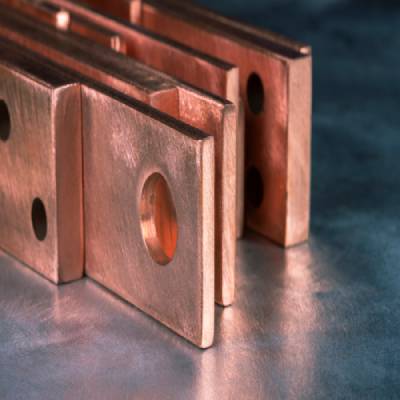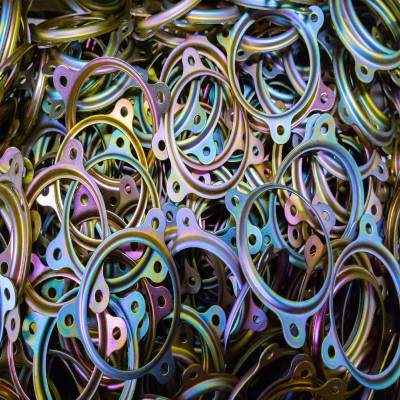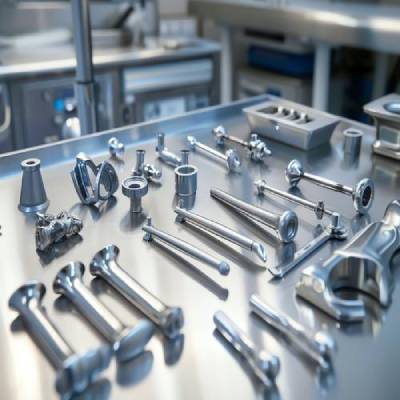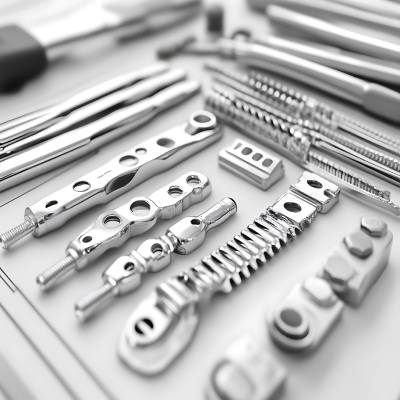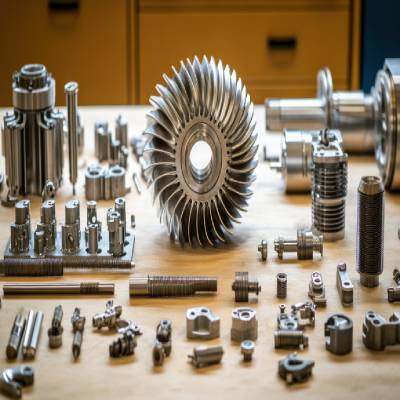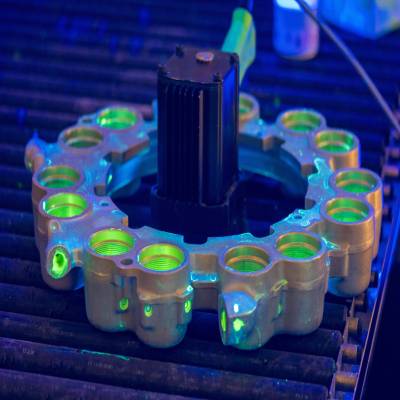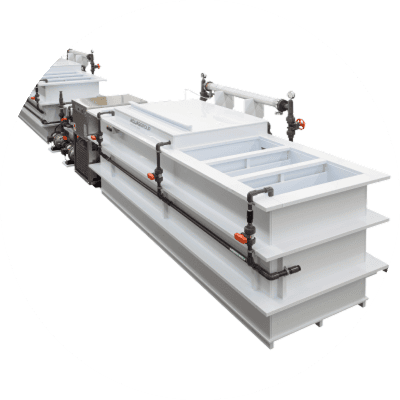Chemical Milling: Precision Material Removal for Complex Geometries
Chemical milling is a subtractive manufacturing process that selectively removes material from metal surfaces using controlled chemical etching. This technique is ideal for producing intricate geometries, reducing weight, and adjusting part thickness without introducing mechanical stress or altering metallurgical properties. Widely used in the aerospace, defense, and electronics industries, chemical milling enables lightweight structural components and detailed surface modifications with high precision and repeatability.
- Surface Preparation: The metal surface is cleaned and masked with a chemical-resistant coating to define the areas for material removal.
- Chemical Etching: The exposed areas are immersed in a carefully controlled etchant solution that dissolves metal at a predictable rate.
- Rinsing and Neutralization: After the desired depth is achieved, the part is removed, neutralized, and rinsed thoroughly, typically with deionized water.
- Maskant Removal and Final Cleaning: The maskant is stripped, and the part is cleaned to remove residues and prepare it for the next stage of processing.
- Weight Reduction: Common in aerospace to lighten structural parts without compromising integrity.
- Precision Surface Shaping: Producing pockets, grooves, and contours in titanium, aluminum, or specialty alloys.
- Component Balancing: Fine-tuning parts like turbine blades or rotors by removing specific material volumes.
- Surface Texturing: Creating controlled finishes for bonding or coating applications.
- Deionized (DI) Water Rinsing: Ensures no ionic contamination, improving downstream coating or bonding performance.
- Closed-Loop Rinse Water Systems: Maintain high water purity standards while significantly reducing consumption and discharge.
- Consistency: Achieves uniform depth across complex geometries.
- Quality: Prevents over-etching, under-etching, and surface pitting.
- Efficiency: Reduces chemical waste, improves yield, and minimizes rework.
AQUASGROUP chemical milling systems are engineered to deliver accurate and repeatable results while ensuring safe handling of corrosive chemistries.
- Precision Chemistry Control: Automated dosing and monitoring maintain optimal etching conditions.
- Durable Construction: Corrosion-resistant tanks, piping, and fixtures ensure long-term reliability.
- Agitation & Circulation: Promotes even chemical action and temperature uniformity across the workpiece.
- Integrated Rinse and Neutralization Systems: Improve workflow and prevent chemical carryover.
- Safety & Containment: Includes fume extraction, overflow protection, and smart diagnostics for safe operation.

Proven Expertise Since 1986
Since 1986, AQUASGROUP has designed and built advanced metal finishing and water management systems with thousands of successful installations across the globe. Our systems are trusted by major aerospace, medical device, automotive and other industrial manufacturers for their precision, reliability, and ability to integrate seamlessly into demanding production environments. We offer engineered solutions that align with your quality, efficiency, and sustainability goals.
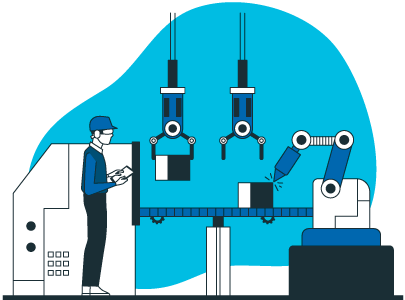
Mailing Address:
Corporate Headquarters & Fabrication Division
41 Commercial Way
East Providence, RI 02914
Water Technologies & Service Division
830 Waterman Avenue
East Providence, RI 02914
